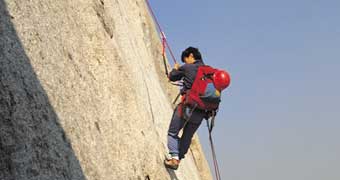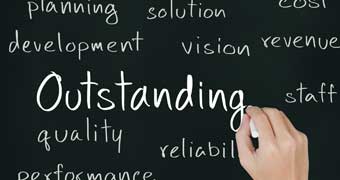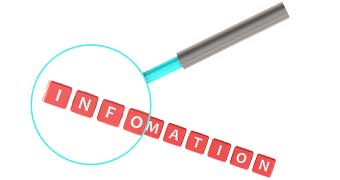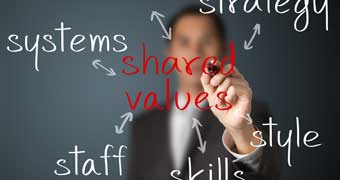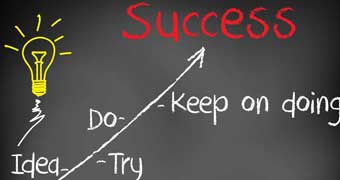Communication Skills
Art of Persuasion
The essence of communication is the art of persuading or convincing another person or group of people.
Words, Tone, Body Language
We often assume the words we say are what the listener uses to glean the meaning of our message. However, we often forget the listener uses the tone and body…
The Power of Perception
Perception can distort our intended message.
Platform of Credibility
Credibility gives you, the speaker, an understood platform from which to communicate your ideas.
The Importance of Making Sense
What good is a message if no one can understand it?
Confidence vs. Arrogance
To deliver a successful, credible message, confidence is key. The ability to communicate with confidence rather than arrogance builds credibility.
Building Positive Behaviors
Forming habits, such as building positive behaviors, takes effort, energy, and time. Different people need different amounts of time to develop a new habit.
Creating a Personal Connection
How likely are you to listen to someone if you do not think that person cares much about you?
Demonstrate Active Listening
How do you know when someone is really listening to you and valuing what you say?
Do You Listen Well?
Have you ever been guilty of listening with the intent to reply?
Receiving Feedback
What is your response when someone tells you you could have done something better?
Changing Behaviors
Adopting a new skill or habit is hard. It takes committed, deliberate intentionality, and accountability to keep you on track as you move toward your goal.
Conflict Resolution
The Truth About Conflict
Conflict is costly if not handled effectively. It has the ability to wreak havoc on those personally involved, on entire organizations, and even on the clients those organizations serve.
Tools for Resolving Conflict
“The harder the conflict, the more glorious the triumph.”
Preparing for Difficult Conversations
The more you prepare for difficult conversations the more effective you can be.
Responding to Conflict
When you respond to a conflict, keep in mind there are two sides to every story.
How to Mediate Conflict
It can be challenging to help people navigate through a difficult conversation, to make sure both people feel heard, and to push them towards resolution.
Detecting Potential Conflict
As a leader, you should make it priority to know those with whom you work, recognize conflict, and deal with it purposefully.
Identifying Conflict Triggers
People can definitely act difficult but that does not mean they are difficult 100% of the time to everyone with whom they interact.
How to See Anger for What It Really Is
When someone reacts in anger, it is difficult not to take the offense personally; but your ability to recognize anger for what it really is will increase your influence as…
To Speak or Not to Speak…
There are times when a conversation is not the best course of action, at that particular time.
Concluding the Conversation
The conclusion of a difficult conversation does not always mean each person fully agrees with the other party’s position in the argument, but it does have to end productively.
Right Time and Place for a Difficult Conversation
There is no perfect time to have a difficult conversation, but there are certainly times that are better than others.
Victim vs. Victor Mentality
Do you assume a victor or victim mentality in conflict situations?
Conflict as a Personal Growth Opportunity
The more you prioritize learning from the experience, the more influential you will be when handling future conflicts and difficult conversations.
DEI: Diversity, Equity, and Inclusion
Effective Leadership
The Meaning of Leadership
Effective leaders cultivate trust, accountability, communication, and loyalty to build psychologically safe atmospheres for their teams.
Situational Leadership
Maintaining a psychologically safe atmosphere that encourages team members to ask questions or for clarification at any point is key.
Action Centered Leadership
As leaders, our concentrated attention on tasks often obscures our attending to the needs of individuals as well as the overall team.
Delegation – Why and What
Successful delegation requires choosing to appropriately delegate those tasks that support the overall productivity of your team – for individuals as well as the collective team.
Delegation – Resistance
Awareness of potential delegation barriers allows one to resist the temptation to underutilize delegation
Delegation – Strategy
Use delegation to your advantage to utilize your resources and increase productivity for your entire team.
Meeting Preparation
To communicate the value of your team’s time and the meeting itself, carefully consider these essential points in your planning process.
Meeting Facilitation
Have you ever attended a boring meeting? Don’t let your meetings be like those.
Problem Solving Skills
When people work in close proximity with each other, problems are inevitable. Leaders must know how to manage problem situations and resolve them quickly and effectively.
The OODA Loop: A Proven Decision-Making Strategy
The OODA Loop focuses on filtering available information and data, putting it into context, and making appropriate decisions, all while acknowledging decisions are dynamic and may need adjusting as additional…
Time Management – Planning and Scheduling
Your ability to effectively manage time influences your entire team. Properly utilizing time strengthens productivity as well as performance.
Time Management – Energy Focus
Are you conscious of a certain time during the day you find it hard to focus?
Effective Management
Motivating and Inspiring Your Team
Creating a Positive Workplace Culture
Promoting a psychologically safe workplace culture that enriches internal cohesion by prioritizing inclusion should be of utmost importance to you and your entire team.
Inspiring Motivation
Lack of motivation is usually not due to lack of potential but to the wrong types of motivators.
Inspiring Excellence
Success is “peace of mind which is a direct result of self-satisfaction in knowing you did the best of which you are capable.” - John Wooden
Value of Accountability
Accountability is one of the most powerful tools for unifying teams and keeping them on track towards the intended goal.
Being Authentic
People are drawn to authenticity and relatability.
Working with Different Generations
What may matter greatly to someone of one generation may be of no concern to someone of another generation.
Working With Everyone – The Question of Trust
There will always be varying levels of trust within a team and building trust takes time and dedication.
Psychological Safety
As a leader, it is your job to promote an environment in which your team has the ability to function in this way: psychologically safe.
Establishing Rapport
Rapport is “a close and harmonious relationship in which people understand each other’s feelings and ideas and communicate well.”
Coaching Tips
Coaching is essential to leading effective teams. Knowing how to best coach each of your team members is foundational in developing optimal performance.
EXCEL Coaching Model
Let’s walk through a coaching model based on the acronym, “EXCEL.”
Talent Mining
Talent-mining is the process of analyzing the interests, skills, and aptitudes of an individual in order to discover patterns and other information.
Team Building
Characteristics of a Team Player
Different people with different personalities and strengths are what empower teams.
Building Team Accountability
Building team accountability is important. Accountability is the means by which a team stays “on track” and strengthens relationships.
Building Team Communication
Effective communication can be more difficult than one would assume. It has to be proactive and intentional.
Building Team Loyalty
The better team members communicate the more value they convey to each other.
Building Team Trust
Trust is essential for building teams who stand with each other, regardless of inconvenience or difficulty
Instilling Confidence
Confident leaders seek opportunities to build the confidence of those they lead.
Stages of Team Development
Do you know how to take your team from where they are now to a level of high performance?
Stage 1: Forming
In the forming stage, the team is coming together and becoming familiar with the way each member of the team works.
Stage 2: Storming
In the storming stage, team members seek to prove their worth, or value, to the team.
Stage 3: Norming
As a team committed to a problem-solving mentality begins to work together compatibly, it moves from the storming stage into the norming stage.
Stage 4: Performing
When a team reaches the performing stage, they still need an invested leader.
Performance vs. Production
Are you mistaking high-production as high-performance?
Project Aristotle
Google’s Project Aristotle found that psychological safety is one of the leading, if not most influential, characteristics of successful teams.
Working Remotely
Working Remotely – Part 1
Working from home can be a great alternative to the office setting, as long as you have a strategy and implement a plan.
Working Remotely – Part 2
Both communication and collaboration are a top priorities for the office, and even more important when working remotely.
Working Remotely – Part 3
Knowing how to use breaks productively as well as anticipate distractions will enhance your ability to work successfully from home.
Coping with Quarantine
In this unprecedented time, when life as we knew it has completely shifted, coping with quarantine is a critical life skill.
Coronavirus (COVID-19) Prevention
With the spread of Coronavirus (COVID-19), we must use preventive measures, proactively, in order to avoid the illness.
Coming Back from COVID: Disinfecting Your Work Facility
In anticipation of Shelter-in-Place orders lifting soon, plans to slowly reopen businesses are underway. Consequently, an important part of this is disinfecting your work facility.
Preparation: Tips for Online Meetings – Part 1
In the ever-expanding world of technology, meeting remotely has never been easier. In order to conduct effective online meetings, here are a few preparation tips for online meetings and webinars.
Guidelines: Tips for Online Meetings – Part 2
It is important to adequately prepare before a meeting as well as follow these guidelines / tips for online meetings.



























